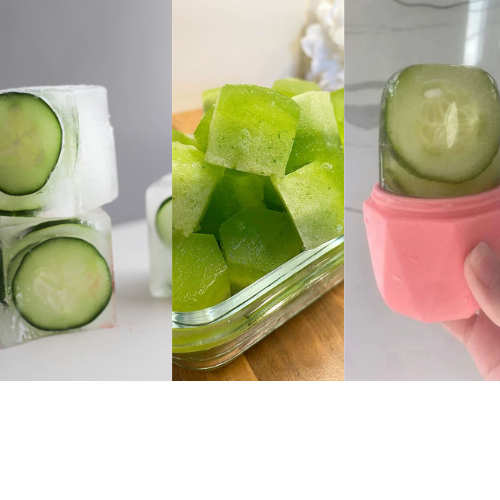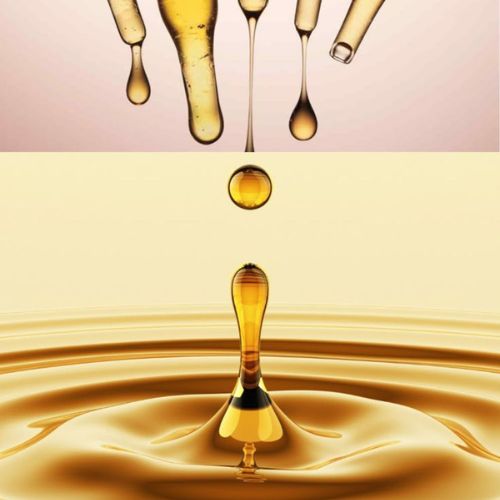Ginseng for Skin: Benefits, Uses, and the Perfect Skincare Routine
Ginseng, a renowned herb in traditional medicine, is now widely used in skincare for its anti-aging, soothing, and revitalizing properties. Packed with antioxidants and essential nutrients, it helps fight signs of aging, brighten the complexion, and protect the skin from environmental stressors.
Ginseng has a long history of use in skincare, and scientific research continues to uncover its benefits. When choosing ginseng-based products, look for those backed by credible dermatological studies or formulated by reputable brands

Benefits of Ginseng for Skin:
Anti-Aging – Ginseng is rich in antioxidants that help fight free radicals, reducing wrinkles and fine lines. It also boosts collagen production, keeping skin firm and youthful.
Brightening – It contains compounds that help fade dark spots, hyperpigmentation, and dullness, giving the skin a radiant glow.
Hydration – Ginseng helps maintain skin moisture, preventing dryness and flakiness.
Soothing & Anti-Inflammatory – It reduces redness, irritation, and inflammation, making it beneficial for sensitive skin and conditions like acne or rosacea.
Improves Blood Circulation – Ginseng enhances blood flow, delivering oxygen and nutrients to the skin, promoting a healthy, even complexion.
Fights Acne – Its antibacterial and anti-inflammatory properties help control breakouts and reduce acne scars.
Protects Against Environmental Damage – Ginseng helps shield the skin from pollution, UV damage, and other environmental stressors.
How to Use Ginseng for Skin:
Ginseng Face Masks – Use ginseng-infused masks for hydration and brightening.
Serums & Creams – Look for skincare products containing ginseng extract for daily anti-aging benefits.
DIY Ginseng Toner – Boil ginseng root, cool it, and use it as a natural toner.
Ginseng Oil – Massage a few drops onto the skin to improve elasticity and hydration.
Sources of Ginseng for Skin
Panax Ginseng (Asian Ginseng): This is the most commonly used type of ginseng in skincare. It is revered for its potent anti-aging and skin-soothing properties. The root of the plant contains ginsenosides, which have been shown to enhance skin regeneration, reduce wrinkles, and improve overall skin health.
Panax Quinquefolius (American Ginseng): Though less common in skincare, this variety of ginseng is also known for its anti-inflammatory and antioxidant properties. It is often used for its calming effects on the skin.
Wild Ginseng: This form of ginseng grows naturally and is considered to be more potent due to its longer growing period. It is highly valued for its therapeutic properties and is often used in high-end skincare products.
Myths vs. Facts About Ginseng for Skin
Myth : Ginseng eliminates wrinkles instantly.
Fact: Ginseng helps promote collagen production and skin regeneration, but visible results take time. Consistent use over weeks or months is required to see significant improvements in fine lines and wrinkles.
Myth : Ginseng is only beneficial for mature skin.
Fact: Ginseng benefits all skin types, including young skin. It helps with hydration, balancing oil production, and improving skin tone. Its anti-inflammatory properties make it ideal for soothing sensitive skin.
Myth : Ginseng can be used without any precautions.
Fact: As with any active ingredient, it’s important to introduce ginseng gradually and perform patch tests to avoid potential irritation or allergic reactions.
Myth : Ginseng can replace sunscreen.
Fact: While ginseng provides some protection against environmental damage, it cannot replace the need for sunscreen. Ginseng is best used as part of a comprehensive skincare routine, with sunscreen as a crucial final step.
How Ginseng Compares to Other Skin Care Ingredients
Ginseng vs. Vitamin C
Ginseng: Focuses on boosting circulation, enhancing collagen production, and providing antioxidants for skin protection. It is ideal for improving skin texture and overall health.
Vitamin C: Is renowned for its brightening properties, as it helps lighten dark spots and hyperpigmentation while protecting the skin from free radicals.
Comparison: While both ingredients offer antioxidants and anti-aging benefits, ginseng is better for boosting circulation and hydration, while Vitamin C excels at brightening the skin and fighting UV damage. Combining both in a routine can provide more comprehensive skincare benefits.
Ginseng vs. Retinol
Ginseng: Offers a gentler approach to anti-aging by boosting skin health and promoting collagen production without causing irritation.
Retinol: A powerful derivative of Vitamin A, retinol is more aggressive, speeding up cell turnover and reducing fine lines but often causing irritation or dryness, especially for sensitive skin.
Comparison: Ginseng is a safer alternative for those with sensitive skin, whereas retinol provides faster, more noticeable anti-aging results but requires a more cautious approach.
Ginseng vs. Hyaluronic Acid
Ginseng: Improves skin’s resilience, tightens, and fights free radical damage, promoting overall skin health.
Hyaluronic Acid: Primarily known for its incredible hydration properties. It attracts water to the skin and helps maintain moisture levels.
Comparison: While both ingredients are hydrating, ginseng offers additional anti-aging and skin-firming benefits, while hyaluronic acid focuses more on providing immediate moisture.
Ginseng vs. Tea Tree Oil
Ginseng: A powerhouse for anti-aging, soothing, and boosting skin regeneration.
Tea Tree Oil: Known for its antibacterial and acne-fighting properties. It helps reduce acne breakouts and control oil production.
Comparison: Ginseng is more suited for anti-aging, hydration, and overall skin wellness, while tea tree oil is more effective for acne-prone and oily skin types.
Scientific Research and Studies on Ginseng in Skincare
Several studies have backed the skin benefits of ginseng, highlighting its role in anti-aging, hydration, and skin healing:
Skin Brightening: A 2018 study in Molecules discovered that ginseng extract has a brightening effect on the skin by inhibiting the production of melanin, which can help with hyperpigmentation and age spots.
Anti-Inflammatory Properties: Research published in Phytotherapy Research (2008) demonstrated that ginseng extract has potent anti-inflammatory properties, which help reduce redness and swelling in the skin, particularly in inflammatory skin conditions.
Hydration and Moisture: A study in Skin Pharmacology and Physiology (2012) showed that ginseng extract can enhance the moisture retention of skin, making it beneficial for dry or dehydrated skin.
Conclusion:
Ginseng has been used for hundreds of years in Eastern medicine and skincare. Its advantages are backed by both traditional wisdom and modern scientific studies. For individuals wanting to add ginseng to their routine, selecting products from trusted brands that follow regulatory guidelines is crucial. Formulas supported by research and tested by dermatologists guarantee both efficiency and safety.
Like any active ingredient, ginseng should be used with caution, taking into account factors such as skin sensitivity, concentration, and its combination with other active ingredients. By adhering to the right practices, you can unlock the benefits of ginseng for healthier, more youthful skin.







